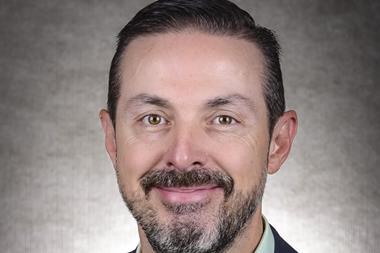The degree of acrimony and the seriousness of the complaints may vary, but the landscape is littered with brewing or expensively-settled disputes - Daimler Chrysler AG, Parmalat, Shell, Eurotunnel. The telecoms industry stands almost in a class of its own, calling to mind Lord Binghams' famous observation in the Lloyd's litigation 10 years ago that it was the Flanders of the modern law of tort. The telecoms industry, pan-global, at the absolute cutting edge of technology, and with huge investments at stake, bids to be the inheritor of that mantle as regards directors and officers.
The same day in April that Nokia Corporation issued a warning that its first quarter revenues would not hit its original expectations, US lawyers filed a complaint alleging violations of federal securities law by Nokia and certain of its executives between 8 January and 6 April this year.
That is a pretty short lead time. We are only talking about a 2% decline in first quarter net sales of $7.9bn, which hardly compares with the billions of overstated revenue reported by Worldcom. By issuing the warning, was Nokia not keeping its investors updated rather than hiding bad news? Even its stock had risen over the period in question. What is happening is twofold: the class action warriors are beginning to turn their fire power on the blue chips, and the directorial fingers no longer need to have been in the till, or a major collapse have occurred, to attract their hostile attention.
It is against that background that one has to evaluate the various measures in hand internationally to update and improve corporate governance and gauge the seriousness of avowed governmental intentions. As far as the US and UK paradigm models of entrepreneurial management are concerned, often led by a single charismatic individual, we may be standing at a crossroads: what measures like the Higgs report in the UK and Sarbanes-Oxley in the US stand for is a departure from that tradition and the imposition of a regime of independent scrutiny and accountability.
UK measures
The Higgs report, published in January last year, was the latest in a line of reports commissioned from distinguished independent commentators over the last decade. Derek Higgs re-emphasised the role of non-executive directors and sought to reinforce the then combined code by recommending an increased role and greater responsibility for non-executives.
By 2005 companies will have to show 'Higgs friendliness', but most are bowing to the inevitable already as fund managers like Standard Life look for compliance, both domestically and internationally. The quality and quantity of non-executive supervision envisaged will not come cheap. Who is to pay?
Higgs was only the vanguard of a much broader government offensive. The Government's White paper Modernising Company Law, published in July 2002, recognised the provenance of much of British company law in the 19th century and the need to overhaul and bring it up to date for the needs of the 21st. It talked about the independent company law review under which proposals for reform have been developed, and to which the White Paper was the Government's first response. Other initiatives, including independent reviews of corporate governance, and work undertaken in the wake of the collapse of Enron is to be fed into the anticipated parliamentary bill as appropriate. It is anticipated that directors' general duties to the company will be codified broadly as proposed by the company law review.
US approach
While the British government has been taking its time and consulting widely on changes to the regulation of corporate governance, the US acted with what many would see as almost indecent haste following the Enron and Worldcom scandals. Its response to a perceived pressing need was the Sarbanes-Oxley Act 2002. The Act is designed to strengthen corporate governance, strengthen auditor independence and thus prevent future corporate wrong doing.
Such was the hurry that much was left to future implementation by the Securities and Exchange Commission (SEC) in the rush to get in place measures to tighten up:
- disclosure of financial information
- certification of accounts
- internal codes
- codes of ethics
- purchases of securities during black-out periods
- reporting on off balance sheet operations
- loans to directors
- protection of whistle blowers
- establishment of audit committees
- removal of auditor conflict.
The Act applies to US and non US companies that have obtained a listing in the US or that have registered or are in the process of registering securities with the SEC. Such companies are called 'issuers'. It also applies to directors and officers of issuers, their auditors and legal advisers. It does not, thankfully, apply to private placements.
The CEO and CFO of a non-US issuer will have to make two certifications with respect to each annual report filed with the SEC. The first will certify that:
- to the officers' knowledge the report does not contain an untrue statement of a material fact or omit to state a material fact necessary in order to make the statements not misleading
- the report fairly presents in all material respects the financial condition and results of the operations of the issuer
- the officer is responsible for disclosure controls and procedures and has evaluated and presented his conclusions as to the effectiveness of those controls and procedures
- all significant deficiencies or changes have been disclosed.
Secondly, the officer is required to certify that the report fully complies with relevant US Federal Securities laws and fairly presents in all material respects the financial status and results of the issuer. The penalties for false certification include fines and imprisonment.
The SEC is to rule on how on a 'rapid and current' basis material changes are to be published.
Issuers must disclose whether they have a code of ethics for senior management and if not, why not. If they do, it must be publicly available.
As with the UK there is discerned to be an increased role for shareholders and in particular institutional investors with the clout to enforce observance and change. There is significant similarity in the emerging approach in the US, UK and Europe. These trends are expected to continue to converge.
On the horizon
While the British legislature is taking its time about the enactment of the rules for the 21st century, there can be little doubt that such legislation will occur. Some early indications at the drafting stages are sending mixed messages. Resistance to some of the more punitive elements of the Pensions Bill have resulted in 145 changes diluting provisions which could see directors personally funding deficits in pension funds.
Moral hazard clauses criticised as unworkable have similarly been softened.
A six year backstop is now proposed, along with a more relaxed approach to what may be justifiable conduct in particular cases.
On the other hand, the Department of Trade & Industry recently ended the debate on whether caps on auditor or director liability should be introduced with a flat refusal. Nevertheless, by tabling amendments to the Companies House (Audit, Investigations and Community Enterprise) Bill at its Commons Committee stage, some important and beneficial changes for directors will be introduced, in particular relaxing the current prohibition on companies exempting their directors from, or indemnifying them against, liability. These will:
- permit, but not require, companies to indemnify directors in respect of proceedings brought by third parties (covering both legal costs and the financial costs of any adverse judgment, except for the legal costs of unsuccessful defence of criminal proceedings, fines imposed in criminal proceedings and penalties imposed by regulatory bodies such as the financial services authority)
- permit, but not require, companies to pay directors' defence costs as they are incurred, even if the action is brought by the company itself.
The director would still be liable to pay any damages awarded to the company and to repay his defence costs to the company if his defence were unsuccessful (except where the company chooses to indemnify the director in respect of his legal costs in civil proceedings brought by third parties).
The Government also intends to remove a loophole under which a company in the same group may currently provide an indemnity to a director that would be unlawful if it was provided directly by the company of which the individual was a director.
Companies that indemnify directors will have to say so in their annual report and accounts, and shareholders will have the right to inspect any indemnification agreement.
In the courts
Meanwhile the UK courts have had to struggle on with the prevailing 19th-century law, with interesting results. In allocating blame between management and auditors for the £800m collapse of Barings, Mr Justice Evans-Lombe found that Deloitte & Touche were not liable for Nick Leeson's trading losses post dating 30 April 1994, at which time the tally stood at only US$32m. Moreover, damages against them were reduced to reflect Barings Futures Singapore's own contributory negligence.
Whilst this provides no formulaic principle for determining where the buck stops between management - ie directors - and auditors, it is clear that the engagement of auditors does not entitle management to abdicate its own responsibilities to the company. Is the pendulum swinging back against directors?
In time, the Equitable Life case may provide the answer to that question.
Equitable Life, the stricken life mutual, has brought proceedings against its auditors and 15 of its former directors, no less than nine of whom were non-executive directors.
The nine non-executive directors applied to have the claim struck out on the basis that it had no real prospect of succeeding. Without expressing any views on eventual liability, Mr Justice Langley concluded that the case was not one of which it could be said that it had no real prospect of success, saying:
'1 Directors have both collectively and individually a continuing duty to acquire and maintain a sufficient knowledge and understanding of the company's business to enable them properly to discharge their duties as directors.
2 While directors are entitled (subject to the Articles of Association of the company) to delegate particular functions to those below them in the management chain, and to trust their competence and integrity to a reasonable extent, delegation does not absolve a director from the duty to supervise the discharge of the delegated functions.
3 No rule of universal application can be formulated as to the duty referred to in 2 above. The extent of the duty and the question of whether it has been discharged must depend on the facts of each particular case, including the director's role in the management of the company."
The judge did not at the time of his judgment have the benefit of the wisdom of the Penrose Inquiry which, in spite of a less than glowing report for the regulators, laid the bulk of the blame firmly at the door of Equitable's former management. Penrose considered that the skills of the non-executive directors were inadequate for the task of supervising a complex life assurance firm. They were 'so wholly dependent upon actuarial input from the executive and in particular from the chief executive/actuary, that they were largely incapable of exercising any influence on the actuarial management of the Society'.
We seem, in the words of the Chinese curse, to be living in interesting times. The indications are that we are only at the beginning of the most rigorous shake up in corporate law, domestically and globally, for over a century. The biggest risk directors and officers may face for their companies, their insurers and themselves may be in failing to recognise that and to start the process of adapting to the change now.
Kenneth McKenzie is a partner, Davies Arnold Cooper, Tel: 020 7936 2222, E-mail: kmckenzie@dac.co.uk



















